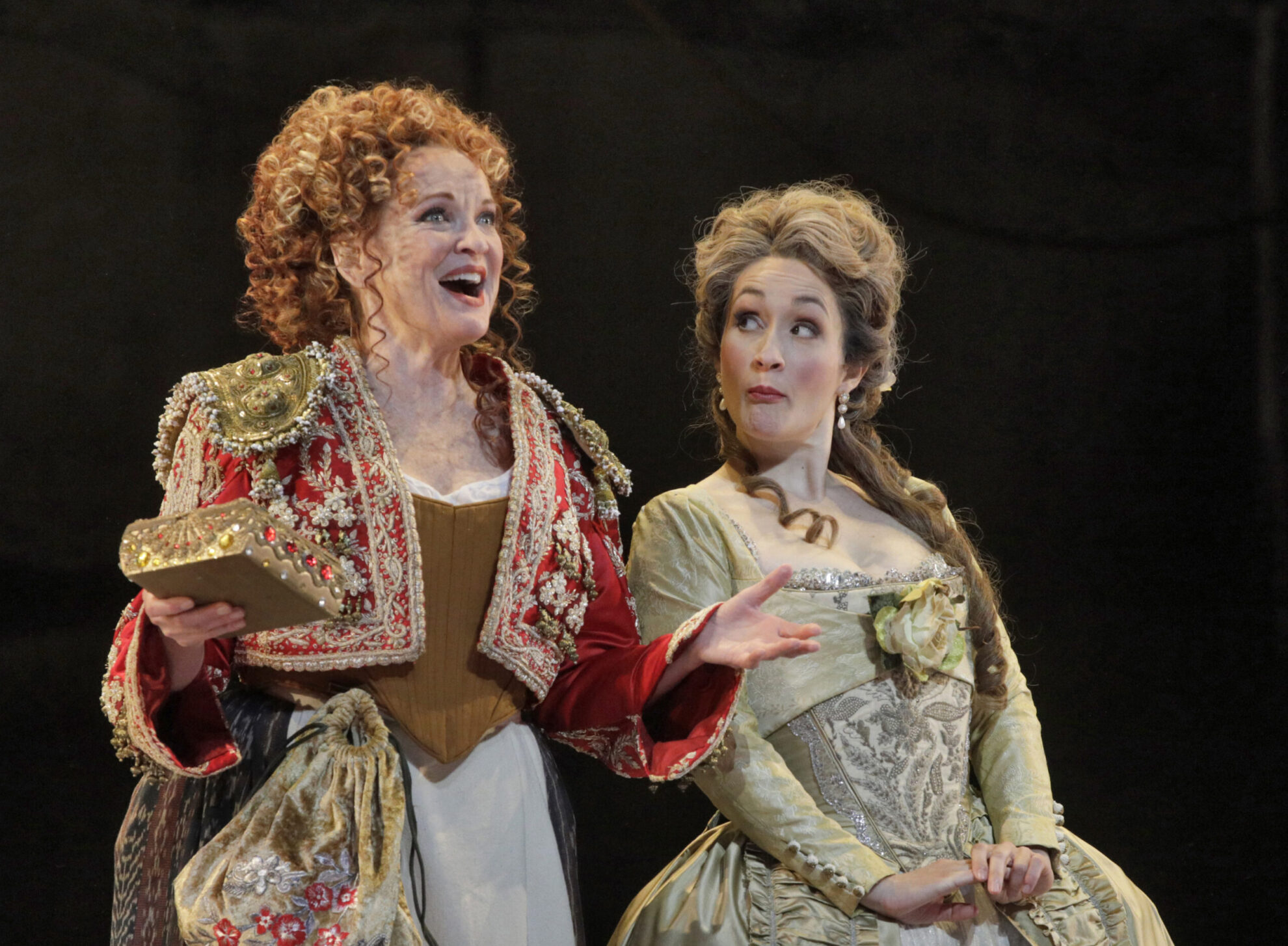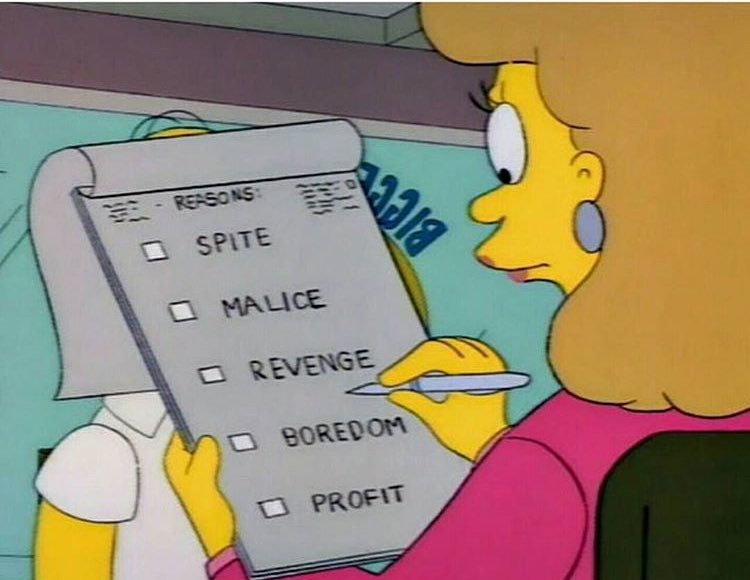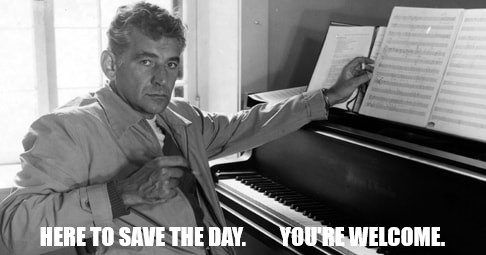Tickets on sale now
Hungry for more theatrics? This is only the start. Grab your tickets to Candide 2024 and see what all the fuss is about.
Keep up to date on upcoming performances and event, glimpses behind the scenes and special offers.

The creation of the operetta Candide was dramatic, to say the least.
The original text led to political blacklisting, and history-making controversy.
Its adaptation by renowned playwright and secret communist, Lillian Hellman, was a work of protest.
Teaming up with the famous Leonard Bernstein to fight back against communist persecution in their time, Hellman had a plan. But she was ultimately betrayed.
How did all of this happen?
If you didn’t know, here’s the juicy backstory of the drama, politics, and rebellion from which Candide was born…
Part musical theatre, part opera, Candide is one of the most beloved and acclaimed productions amongst theatre fans.
Its controversy starts at its inception, rewinding all the way back to 1759.
The musical operetta is based off a book of the same name by French writer Voltaire.

History buffs will know him as the sassy philosopher and advocate of free speech, who was anti-slavery and anti-Catholic church.
TV buffs will recognise him from Hulu’s The Great, as it is historically well-documented that he was an admired friend of Catherine the Great.

Published in 1759, Candide was extremely controversial for its time.
The Plot
The story follows protagonist Candide, who is taught by his tutor Pangloss that everything is part of God’s inevitable plan and for the good of the world.
The young and naïve Candide is then flung into the real world to test this theory, with his great love Cunégonde.
They encounter truly unpredictable disasters and challenges, coming to realise universal truths of ‘goodness’ and life in their journey.
The historical story is considered Voltaire’s magnum opus.
It criticised the blindly optimistic beliefs and trendy philosophies of the Enlightenment.
He also took shots at hypocritical religious institutions, especially the Inquisition of the Catholic Church, that tortured and killed heretics (Remember that for later.)
This led to quite the scandal. The book was widely banned for being blasphemous and too politically controversial.

We now move WAY forward to 1953, when iconic female playwright and Communist Queen Lillian Hellman wanted to adapt Voltaire’s work into a musical. Slay.
Whilst researching, Hellman saw similarities between the Catholic Inquisition that Voltaire despised, and Witch-huntesque persecution/blacklisting of communists carried out in the US by the House Un-American Activities Committee.
Thoroughly TEED OFF, Hellman began adapting her own version Candide.

To get her started, she approached the very famous Leonard Bernstein to create the musical with her. He easily agreed and shared her passion, having been denied a passport by his own government due to suspicions of communism.
(Fun fact: this also happened to Voltaire in his time.)

Before long, the two had hired Pulitzer winning poet Richard Wilbur, American writer and poet Dorothy Parker, and lyricist John La Touche, to create the show with them.
Thus the Dream Team was born.
In 1956, the original Broadway production of Candide opened to mixed reviews.
This was potentially due to its political themes. It was performed for two months before closing. Not a great result.
However, Bernstein’s cast recording of the show gained a cult following. A little context: At this time, Bernstein was in his prime. He actually composed the music for West Side Story and Candide at the same time.
Because of the success of Candide’s soundtrack, the show lived on. It was staged in London and on the West End in the 50s, and a few times in the US in the 60s without much fuss. Eventually in 1971, Hellman stepped back and a revision of her book by Sheldon Patinkin was used to stage a production of Candide in San Francisco.

It was that year that legendary Broadway producer Harold Prince (behind Fiddler on the Roof, Cabaret, and later West Side Story, Sweeney Todd, and Phantom of the Opera) decided he wanted to stage Candide. But he also DID NOT want Hellman’s book to do it. Awkward.
He instead brought in the famous Hugh Wheeler (who wrote the books for A Little Night Music and later Sweeney Todd) to write a new book for Candide.
Enter: Stephen Sondheim, who joined the team to write lyrics for the show. Wilbur and Bernstein stayed on board as well.

Their new production opened in Chelsea, Manhatten, then moved to Broadway.
Candide was finally a success, both with critics and popular audiences.
It had 740 performances over a two year run.
In November 1982, showing her trademark moxie, Hellman wrote a biting letter to Bernstein in which she wrote:
“You are too unfeeling to know that I could not have wanted a hack like Hugh Wheeler to fool around with my work, and I have never been very fond of the work of Hal Prince”.
Ouch.
However, Prince continued to direct and produce Candide for years to come.
The show was revised and staged multiple times by the New York City Opera, the Scottish Opera and the Royal National Theatre.

Flash forward to today, when Candide’s style and score continues to be restaged and resonate with modern audiences.
Modern productions vary from dramatic and dark to musical and romantic, with the same iconic characters. Turns out no beef can stop Candide.
Joining this tradition, Victorian Opera’s staging of Candide in February 2024 will bring irreverent drama and dazzling adventure, with direction by Melbourne Theatre’s star director Dean Bryant (Bloom, Fun Home).
See Australian all-stars Lydon Watts (Hamilton) as Candide, Katherine Allen (Amadeus) as Cunegonde and Eddie Perfect (Beetlejuice the Musical) as Pangloss/Voltaire take to the Palais stage with Orchestra Victoria in this unmissable event.
Author: Greta Doell
Hungry for more theatrics? This is only the start. Grab your tickets to Candide 2024 and see what all the fuss is about.